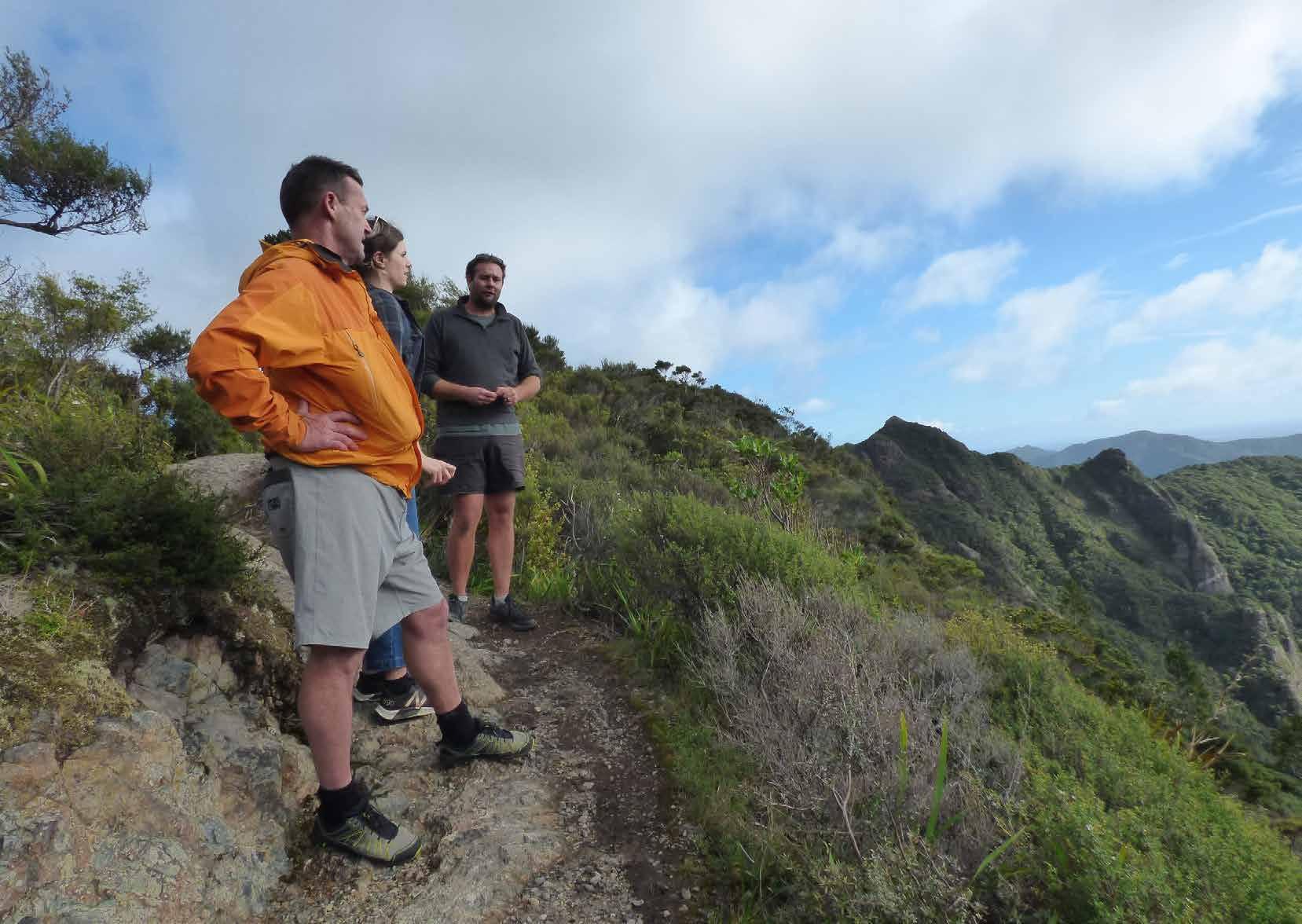
2 minute read
HOW WE COLLABORATE
Members of the Aotea / Great Barrier Island project team. Photo by Melissa Brignall-Theyer.
As a small organisation tasked with playing a significant role in delivering the Predator 2050 goal, successfully partnering, collaborating, and facilitating collaborations across research and landscape projects is critical to our success. We work closely with a large number of partner organisations, including the Department of Conservation and the Predator Free New Zealand Trust. We have strong relationships through our focus on breakthrough science. For example, the ground-breaking completion of full genome sequencing for our target predator species was a result of our collaboration across the Biological Heritage National Science Challenge, Genomics Aotearoa, CSIRO, University of Otago, University of Auckland and Manaaki Whenua. We have prioritised a partnership approach with the landscape projects to support their learning and success. COVID-19 has presented some challenges in engaging face-to-face with our stakeholders, but we are now resuming face-to-face engagement.
Advertisement
HOW WE ENGAGE WITH THE DEPARTMENT OF CONSERVATION
We work closely with the Department of Conservation in their role as lead agency on the Biodiversity Strategy, Predator Free 2050 strategy lead, land manager and product development and operational research funder, to ensure that our activities are complementary, and we are making progress towards achieving the Predator Free strategy by 2050. We engage on a regular and ongoing basis with Department of Conservation staff at multiple levels and across functions. Formal accountability is provided through the Department of Conservation as our monitoring agency, where they act on behalf of the responsible Minister to protect the Government’s ownership interests. This includes engagement on preparation of an annual SPE, regular reporting (monthly or quarterly) related to specific funding allocations, quarterly reporting to the Minister, annual reporting, and other engagement as needed. We are actively engaged in two Predator Free Strategy collaborative working groups, including co-leadership of the “moving from sustained predator control to eradication” working group. As part of its monitoring function, the Department of Conservation commissioned a review of the Company to understand whether the Company and its structure are meeting the purpose anticipated and agreed by Cabinet in 2016. The review has now been completed and the report is with the Minister for consideration. We will continue to work to develop this relationship over the coming year, to ensure we can deliver a strengthened response to New Zealand’s predator eradication needs.
We work with the Biological Heritage National Science Challenge within the remit of our constitution, which is largely focused on engaging and collaborating with organisations that offer breakthrough science research. The first Predator Free 2050 Limited Research Strategy for breakthrough science (2017–2020) was designed in collaboration with the Biological Heritage National Science Challenge. A second strategy (2020-2024) was published in 2021, building on the successful underpinning outcomes of the first strategy. The current tranche of Biological Heritage National Science Challenge science investments relevant to us are operational research activities, for which we identify and facilitate opportunities to work in partnership with our landscape projects and product developers.



